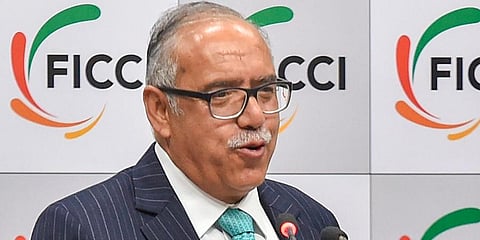

NEW DELHI: Criticising the Supreme Court’s ruling of upholding wide investigative powers of the Directorate of Enforcement (ED) under the Prevention of Money Laundering Act (PMLA), former top court judge Justice Deepak Gupta said ED officials "have been given every police power but they are held to be not police officers".
Delivering a lecture in a series organized by a media house, he said, “PMLA judgment is, in my opinion, even a bigger blow than the Watali judgment. It turns the criminal law on its head. Even if we presume that the material placed by the police is right and accepted as gospel truth, why cannot the court see all the material which has been collected and decide whether the same show the prima facie case or not? The officials of the ED have been given every police power, but they are held to be not police officers.”
The top court in NIA vs Zahoor Ahmad Shah Watali case had barred dissecting of prosecution materials at the stage of bail. Justice Gupta said that the judgment was a 'death knell' to personal liberty as the ruling made it impossible to get bail.
"We live in a country which is governed by the Constitution and we cannot be deprived of our liberty except in accordance with the procedure established by law,” he said.
Terming court observations in the Zakia Jafri’s ruling regarding human rights activist Teesta Setalvad that resulted in her arrest the next day 'as uncalled for', Gupta said a constitutional court must be careful while making such observations.
“Observations which affect the liberty of the citizen. Can a court make such observations without even giving notice to the person against whom such observations are being made? Does not this go against the very principle of fair hearing?” he asked.